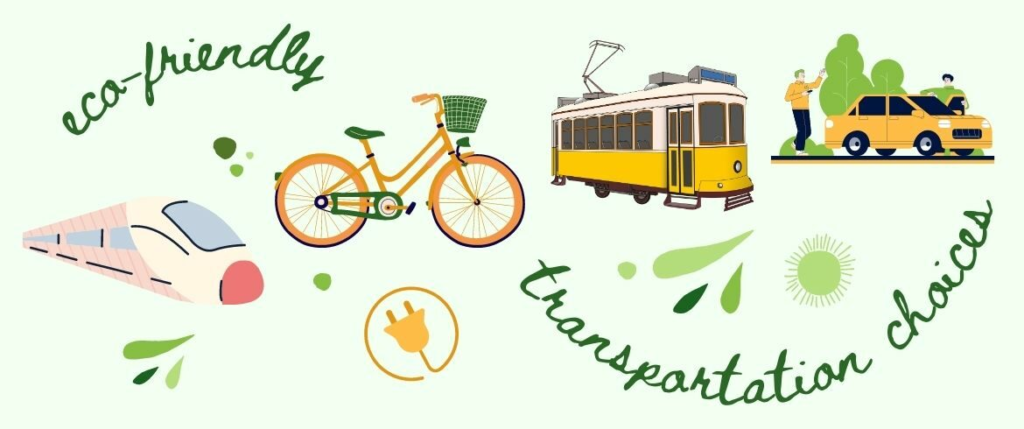
Mobility is a significant challenge for modern societies, crucial for accessing services, employment, education, and culture. However, mobility can also be a source of inequalities, pollution, and congestion. Innovation can contribute to addressing these challenges by proposing more inclusive, solidary, and ecological mobility solutions.
School Transportation
School transportation is a key sector for the mobility of children and youth, often used by families in precarious situations who cannot afford other modes of transportation. Innovation can improve school transportation by making services more accessible, flexible, and sustainable. For instance, the OuiCycle project, developed by the municipality of Saint-Georges-d’Orques (Hérault), offers a shared electric bicycle service for primary school students. Bicycles are made available for free near schools and can be borrowed for commuting to school or other activities. This service is accessible to all students, regardless of social or disability status. It allows families to reduce transportation expenses and limit car usage.
Transport for Persons with Reduced Mobility (PMR)
Transportation for persons with reduced mobility (PMR) is another sector that can benefit from innovation. Individuals with disabilities may face challenges in moving, especially in rural or densely populated urban areas. Innovation can contribute to enhancing their autonomy and social inclusion by providing more accessible and tailored transport solutions.
For example, the Mobicap project, developed by the company Mobicoop, offers a solidarity transport service for PMR. Trips are organized by volunteers who make their vehicles available to transport people with disabilities. This service is accessible to all PMR, regardless of their place of residence. It enables people with disabilities to move freely and participate in social life.
Funding

Securing funding for innovation in mobility presents a substantial challenge due to the potentially high development and implementation costs associated with pioneering projects. The financial support required to bring these innovative solutions to fruition often stems from various sources, each playing a unique role in advancing mobility technologies. Among the primary channels of funding for innovation in mobility are public grants, private investments, and collaborative public-private partnerships.
Public grants represent a crucial avenue for financial support, often provided by governmental entities or regional authorities keen on fostering advancements in transportation. These grants aim to encourage the development of innovative mobility solutions that address societal needs, promote sustainability, and enhance accessibility.
Private funds, sourced from investors and companies committed to driving progress in the mobility sector, play an instrumental role in fueling innovation. The involvement of private investors not only infuses capital into groundbreaking projects but also signifies a vote of confidence in the potential impact and success of these initiatives.
Public-private partnerships stand out as dynamic collaborations between governmental bodies and private entities, combining resources, expertise, and infrastructure to support innovation in mobility. These partnerships leverage the strengths of both sectors to maximize the impact of innovative projects while navigating the complexities of implementation.
A pertinent example illustrating the diverse funding landscape is the OuiCycle project. This initiative, centered on providing shared electric bicycles for primary school students in Saint-Georges-d’Orques (Hérault), secured funding through a grant from the Occitanie region. Additionally, a strategic partnership with Mobicoop, a private company, contributed to the financial backing required for the project’s realization.
Navigating the financial terrain of innovative mobility projects requires a strategic blend of public support, private investment, and collaborative partnerships. By fostering a diverse funding ecosystem, the mobility sector can unlock the necessary resources to drive transformative and sustainable changes in transportation.
In Short
Innovation in the realm of mobility holds the potential to revolutionize the way societies approach transportation, fostering inclusivity, solidarity, and ecological responsibility. These groundbreaking solutions not only promise to improve access to mobility for all individuals but also to mitigate the adverse environmental effects associated with conventional transportation systems.
The current landscape reveals a limited number of innovative mobility projects, but their growth trajectory is undeniably swift. These initiatives stand as a compelling opportunity for communities, businesses, and associations to actively engage in the shift toward a more sustainable and environmentally conscious approach to mobility.
As these projects continue to evolve, they provide a platform for collaborative efforts to shape the future of transportation. By embracing innovation, communities can work towards creating an interconnected and accessible network of transportation services that caters to diverse needs. Businesses have the chance to invest in and develop cutting-edge technologies and services that not only meet the demands of modern society but also contribute to social equity and ecological well-being. Associations and organizations dedicated to sustainable practices can play a pivotal role in advocating for and supporting these initiatives, ensuring that the transition to sustainable mobility remains a shared and collective effort.
In essence, the ongoing expansion of innovative mobility projects signifies a pivotal moment in the quest for a transportation paradigm that is not only efficient and accessible but also environmentally responsible. The collaborative endeavors of communities, businesses, and associations in supporting these innovations will undoubtedly play a crucial role in shaping a future where mobility is both a universal right and a sustainable practice.
Related Content
- Geneva: A City at the Forefront of Transportation and Ecology
- New ways we’re helping reduce transportation and energy emissions
- Bedbugs ‘a real source of concern’ on London transport, says Sadiq Khan
- HS2: announced transport projects were just ‘examples’, says minister
- OuiCycle Project
- Mobicap Project
